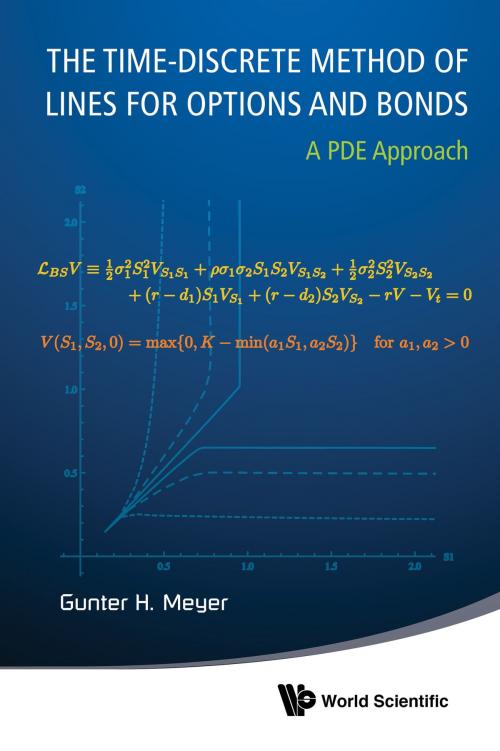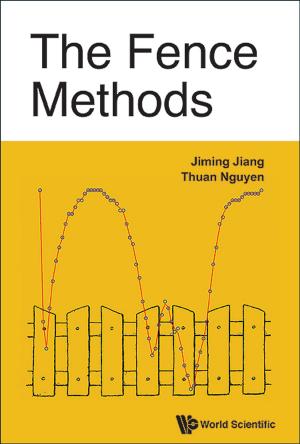The Time-Discrete Method of Lines for Options and Bonds
A PDE Approach
Business & Finance, Finance & Investing, Finance| Author: | Gunter H Meyer | ISBN: | 9789814619691 |
| Publisher: | World Scientific Publishing Company | Publication: | November 27, 2014 |
| Imprint: | WSPC | Language: | English |
| Author: | Gunter H Meyer |
| ISBN: | 9789814619691 |
| Publisher: | World Scientific Publishing Company |
| Publication: | November 27, 2014 |
| Imprint: | WSPC |
| Language: | English |
Few financial mathematical books have discussed mathematically acceptable boundary conditions for the degenerate diffusion equations in finance. In The Time-Discrete Method of Lines for Options and Bonds, Gunter H Meyer examines PDE models for financial derivatives and shows where the Fichera theory requires the pricing equation at degenerate boundary points, and what modifications of it lead to acceptable tangential boundary conditions at non-degenerate points on computational boundaries when no financial data are available.
Extensive numerical simulations are carried out with the method of lines to examine the influence of the finite computational domain and of the chosen boundary conditions on option and bond prices in one and two dimensions, reflecting multiple assets, stochastic volatility, jump diffusion and uncertain parameters. Special emphasis is given to early exercise boundaries, prices and their derivatives near expiration. Detailed graphs and tables are included which may serve as benchmark data for solutions found with competing numerical methods.
Contents:
- Comments on the Pricing Equations in Finance
- The Method of Lines (MOL) for the Diffusion Equation
- The Riccati Transformation Method for Linear Two Point Boundary Value Problems
- European Options
- American Puts and Calls
- Bonds and Options for One-Factor Interest Rate Models
- Two-Dimensional Diffusion Problems in Finance
Readership: Advanced mathematics and quantitative finance graduates, researchers, and practising financial pracitioners.
Key Features:
- No other book discusses mathematically acceptable boundary conditions for the degenerate diffusion equations in finance
- This book emphasizes on numerical early exercise boundaries and solutions near expiration
- It presents extensive numerical data against which the results from competing numerical methods can be compared
Few financial mathematical books have discussed mathematically acceptable boundary conditions for the degenerate diffusion equations in finance. In The Time-Discrete Method of Lines for Options and Bonds, Gunter H Meyer examines PDE models for financial derivatives and shows where the Fichera theory requires the pricing equation at degenerate boundary points, and what modifications of it lead to acceptable tangential boundary conditions at non-degenerate points on computational boundaries when no financial data are available.
Extensive numerical simulations are carried out with the method of lines to examine the influence of the finite computational domain and of the chosen boundary conditions on option and bond prices in one and two dimensions, reflecting multiple assets, stochastic volatility, jump diffusion and uncertain parameters. Special emphasis is given to early exercise boundaries, prices and their derivatives near expiration. Detailed graphs and tables are included which may serve as benchmark data for solutions found with competing numerical methods.
Contents:
- Comments on the Pricing Equations in Finance
- The Method of Lines (MOL) for the Diffusion Equation
- The Riccati Transformation Method for Linear Two Point Boundary Value Problems
- European Options
- American Puts and Calls
- Bonds and Options for One-Factor Interest Rate Models
- Two-Dimensional Diffusion Problems in Finance
Readership: Advanced mathematics and quantitative finance graduates, researchers, and practising financial pracitioners.
Key Features:
- No other book discusses mathematically acceptable boundary conditions for the degenerate diffusion equations in finance
- This book emphasizes on numerical early exercise boundaries and solutions near expiration
- It presents extensive numerical data against which the results from competing numerical methods can be compared















